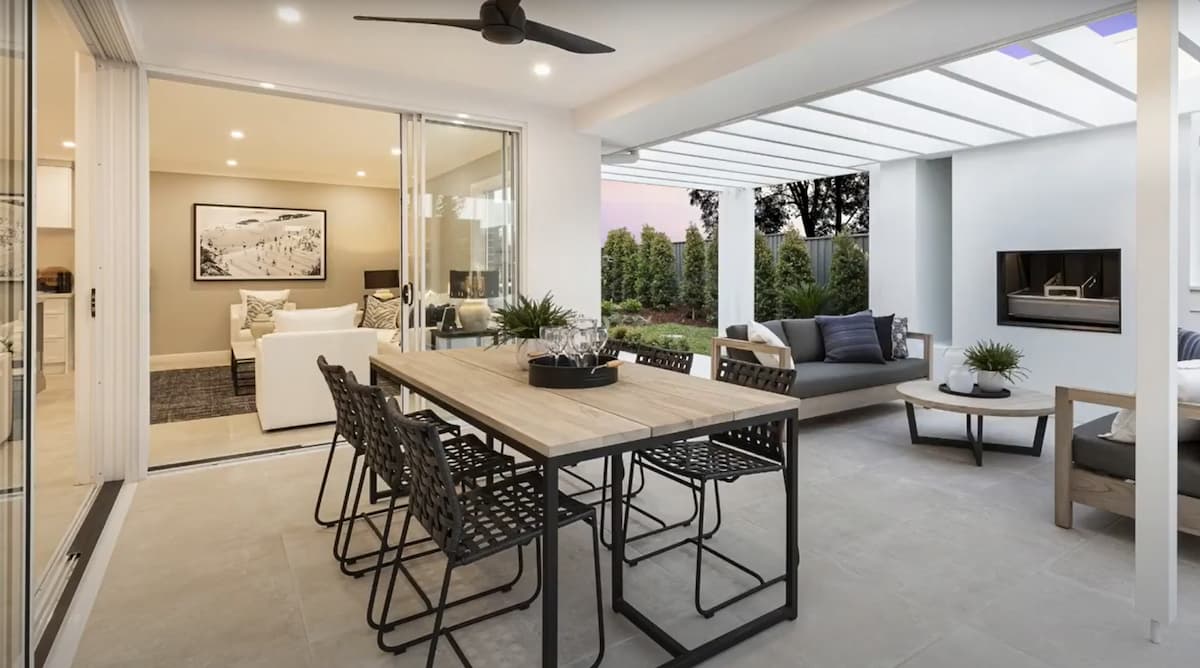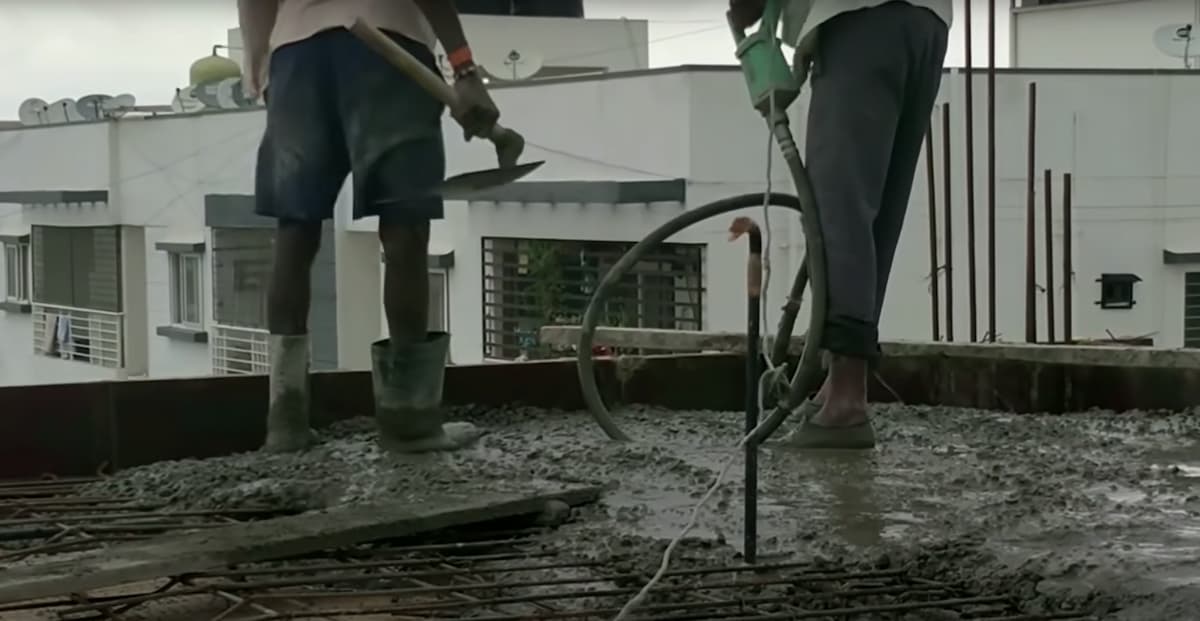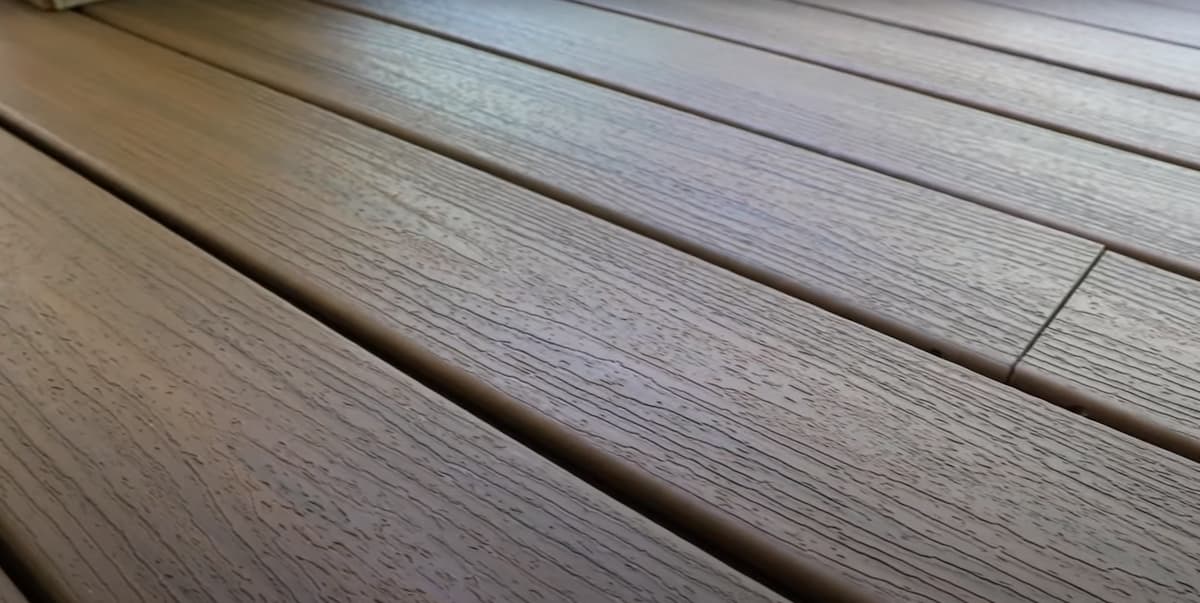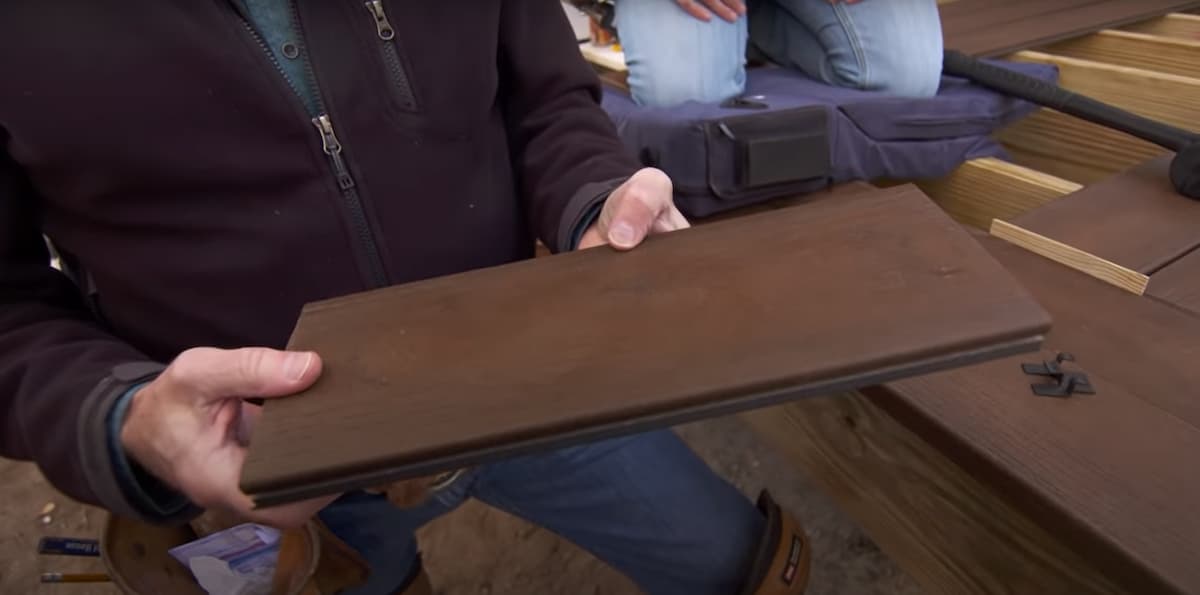Ipe decking looks like wood, but Ipe is one of the hardest tropical hardwoods in the world. It’s naturally water-resistant and does not splinter or crack like other long-lasting woods. Ipe wood resists rot, making it an ideal choice for hot climates.
Over time, ipe becomes more beautiful as the rich oils in the wood are exposed by weathering. This natural patina makes ipe a great option for exterior or interior projects that showcase unique aspects of hardwood. It is also an environmentally friendly option. Ipe decking contains no toxins and is harvested in a sustainable way.
Pressure-treated lumber can be used in some situations, but pressure-treated wood is often treated with arsenic or chromium to make it last longer. Commercial grade ipe composite boards last for decades without the use of chemical treatments.
What is Ipe Wood?
Ipe is the Brazilian name for Tabebuia spp., a group of tropical hardwood trees in the order Bignoniaceae. Ipe wood comes from deciduous trees that can reach heights exceeding 30 metres, with trunk diameters greater than one metre. Two workers are needed to fell an ipe tree because it is so dense and heavy that it cannot be pulled down by one person. The wood’s straight grain does not tend to bow or twist after cutting.
Exposure to ultraviolet light darkens the colour slightly, particularly on exterior surfaces.
Ipe decking was used as ballast along with stones during the shipping of large cargo ships. It has occasionally been used as flooring for the interior of ocean-going vessels. It is considered a premium wood for outdoor decking, pool decks and other outdoor applications, because of its hardness and durability in exterior applications.
The Benefits of IPE as a Decking Material
Ipe wood is an extremely hard, dense and durable wood. It requires no treatment to protect the exposed surfaces from weathering. The exposed areas may turn black over time while the protected core remains its natural colour. This unique patina effect may only increase the beauty of your ipe deck with age. An Ipe deck is able to last decades even in harsh conditions such as salt spray environments or outdoor sports courts.
Ipe trees are naturally resistant to rotting, staining and termites making them one of the most sought after deck materials available today. Ipe decking exceeds with an incredibly smooth finish that does not require sanding to eliminate large scratches, dents or other blemishes associated with wood decking materials. Ipe wood also has none of the splinterings or cracking that is commonly seen with pressure-treated wood materials.
Since no treatment is necessary, Ipe decking may not fade like cedar and other wood deck products that require oil-based stains and sealers. You can expect your Ipe deck to be almost maintenance-free for many years to come. This best decking material has resistance to decay and termites which makes it ideal for wet, damp and even saltwater environments. It can last in outdoor decks, patios, pool decks and other exterior surfaces without rotting or deteriorating quickly like composite decking boards.
Ipe Decking VS Wood
Ipe is one of the few kinds of wood you may find around today that does not need any chemical preservatives or treatments. Ipe is available in the highest grades of any wood available today and it comes at a price that competes with composite decking planks. An Ipe deck and railing may never need to be sanded or stained, and there is no product on the market that can match its natural beauty and staying power.
What does Ipe Decking Stand for?
As you can guess it is one of the best kinds of wood decks. It has many benefits over other types of outdoor woods. You can take a look at its natural beauty but let’s say you are about to build your own, but what could you consider before making a final decision? What does Ipe decking stand for exactly? First, let’s give you some examples of why this type of wooden deck may be the only option to go with.
Ipe (aka Brazilian Walnut) is an exotic hardwood lumber species originating from South America, mostly found near the equator and highly resistant against fungal decay, termites or marine bores, which make it a perfect choice for exterior applications.
Ipe decking is a kind of hardwood that can resist extreme weather, termite infestations and rot even when in contact with water. Its natural oil content makes it durable and resistant to UV light that often breaks down unprotected wood over time. The raw material is used by the pulp industry for the production of mechanical pulps or thermomechanical pulp (TMP) instead of its use as solid timber. It is also used in the production of particleboard and MDF boards.

Application of Ipe Tropical Woods
Due to its high density, stiffness and durability ipe decking has several applications where long-term outdoor exposure is expected
- wooden decks
- patios,
- walkways
- staircases
- docks
- pool decks
- jetties
- outdoor cinemas or sports courts
Ipe decks and railings can be used in poolside areas, outdoor kitchens, children’s playsets and other applications where normal wood would rot or decay much faster. The ipe decking boards are often sold pre-stained to avoid the need for periodic maintenance during their lifetime. They can also be further treated with oil for a more natural appearance as well as water-resistant technology like technology Tung Oil is known as one of the best outdoor finishes you may find today.
Ipe Decking Advantages
There are several advantages of ipe decks compared to other types of wood decking material. Some of them are listed below
- Durability
- Water resistance
- Excellent colour stability
- UV resistance
- Long-lasting decking material
Ipe wood is resistant against decay, termites and marine borers which make it the perfect choice for use in environments where there is constant exposure to moisture. It has a natural oil content that protects its surface from the elements making it durable even when exposed to water. Ipe wood can be stained with any type of oil-based stain without changing the appearance of its grain pattern and texture over time as other woods do due to their porous nature (cedar).
The Brazilian hardwood is extremely resistant to the effects of sunlight and its colour may not fade even after prolonged seasons exposed to direct sunlight. The natural oil content of ipe wood resists rot, decay and termite infestations making it significantly longer lasting than any other type of wood available on the market today.
Is an Ipe Deck Worth It?
In my opinion, an Ipe deck is definitely worth having. Not just because it is the most attractive and long-lasting wood available but also due to its high level of durability and resistance that makes it a great option for building wooden decks. It is evident that we could always try to invest in high-quality products and materials since we want them intact for many years to come.
But not all Ipe decking material is created equal so you may need to consider your options carefully when choosing an ipe wood supplier. Make sure they provide you with professional advice on how much ipe decking material you may need so you can get the best price possible, ensuring their product has been milled from proper grade logs and nothing less than that. You don’t want to end up with a load of substandard ipe decking boards since they may not last for years.
In Australia, Ipe decking materials may cost you around $100 per square metre. That is excluding labour costs. Your ipe deck projects may be very expensive but very worth it in the end.
Ipe Decking Materials
Ipe wood decking and related products and services are available from different timber suppliers in your area.
So, what do you think? Ipe decking makes it the most attractive and long-lasting wood for exterior applications such as wooden decks, patios or even outdoor cinemas or sports courts. Its natural oil content protects its surface from the elements making it durable even when exposed to water. Ipe decking has a high level of durability and resistance that make it a great option for building wooden decks.
Composite Decking Choice
Buying an Ipe composite deck (aka Brazilian Walnut) may be the only smart option to go with since it is resistant against decay, termites and marine borers which make it perfect for use in environments where there is constant exposure to moisture. The raw material used by Ipe Decking manufacturers in Australia comes from sustainable plantations that use natural harvesting methods.
Apart from the fact that it is among the most beautiful timbers, there is, Brazilian Walnut aka Ipe wood may give you a high return on investment when compared to other species of timber out there. It has a naturally rich colour and a strong pattern which makes it more resistant against UV rays and discolouration.
It can be stained with any type of oil-based stain without changing its appearance over time as cedar does because of its porous nature. The oil content of this wood protects its surface from rot, decay and termite infestation making it significantly longer lasting than any other type of wood available on the market today. When talking about durability, ipe wood is the only one that can be used for decks. As far as I know, there is no other type of wood out there that comes close to the properties of ipe decking boards.
Disadvantages of Ipe Decking
The main concerns with using Ipe decking products involve the following. The high cost per square metre of this exotic wood species makes it a very expensive choice for decking. It is difficult to machine, especially without creating an excessive amount of sawdust which may be properly disposed of (creates potential environmental issues).
This material’s hardness and density make it prone to denting when dropped on the surface or when walked upon. Ipe has high oil content and is not completely resistant to rot or fungus growth, however, once installed, treated and sealed properly, Ipe could last many years with only minor normal wear and tear. No chemical formulations exist that can penetrate into the wood fibres like in most other species.
This means that an Ipe wood deck cannot be stained or finished except by penetrating finishes such as oils or varnishes, otherwise, any chemicals may “sit on the surface”. For this reason, Ipe decking may be sanded and finished with oil-based finishes in order to achieve the best protection. One of the most interesting attributes of Ipe wood decking is that it is naturally resistant to salt spray corrosion. However, it may still show signs of wear in some applications when used under certain weather conditions or in marine environments.
Ipe Decking Specifications
There are a series of standards that have been created to control quality and ensure environmentally sustainable management of forest resources at all stages from production to consumption. In Australia, products made from ipe wood have ratings by the forest stewardship council, look for the FSC certified wood marking. In the US, look for the ‘Tree Farm Standard’ label as well as certified projects marked by the American Forest & Paper Association’s Sustainable Forestry Initiative program.
Ipe is a popular choice for use in landscaping applications including decking, fences and outdoor furniture. It makes an ideal material for planters, raised garden beds and other landscaping features that require a durable material that can withstand extreme temperatures as well as very dry or wet conditions. Used in water-holding basins or ponds it may actually help protect the basin structure from rotting due to fungus growth or fungal decay by absorbing excess moisture which lessens the likelihood of mould growth on the surface.
This wood also has anti-fungal properties which prevent rot from spreading because many fungi are not able to grow within its cell structure. For this reason, ipe decking is one of the best choices for use in wet areas such as near swimming pools or water features.





